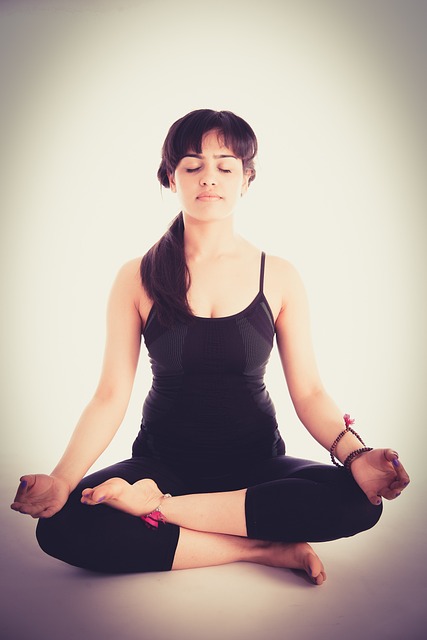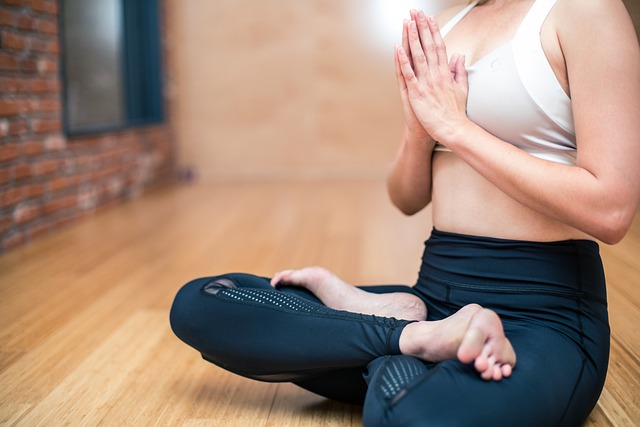the efficacy of Sudarshan Kriya Yoga (SKY) in reducing psychological distress and enhancing wellness among physicians at risk of burnout. SKY, a comprehensive wellness program encompassing yoga, unique rhythmic breathing, meditation, and stress management techniques, has shown promise. This program, effective even when conducted online, has been beneficial in various groups, including war veterans, prisoners, and university students, demonstrating improvements in stress, anxiety, depression, and overall wellness.
Further research is needed to explore these interventions’ long-term effects and scalability across diverse healthcare settings and populations.
The high degree of stress and burnout among physicians and other health care workers has been well established, with a high percentage of physicians experiencing burnout. This has serious adverse effects on physicians, their families and patients, and the health care system, with a substantial negative impact on the health economy. The COVID-19 pandemic exacerbated burnout and stress, with increased depression, insomnia, anxiety, and distress observed in physicians.
Thus, interventions are needed to decrease psychological symptoms, improve sleep, and prevent burnout to avert major detrimental outcomes, such as adverse impacts on care quality, patient experience, and care access, in our health care system.
Previous studies have reported that lack of organizational measures is a major factor in physician burnout. However, individual approaches that are aligned with system-level measures are also needed. Thus, specific programs are needed for physicians to increase their wellness. Here, we focus on the mental well-being of physicians, the dimension most frequently used to operationalize physician wellness. This includes measures of burnout, depression, stress, or distress, and work attitudes, such as work or job satisfaction, career satisfaction, and organizational or career commitment.
Sleep quality and optimism are included as related aspects. Several wellness approaches have been previously introduced for physicians, including mindfulness practices, meditation, stress management programs, and small group discussions. Most of these studies were correlational and evaluated a limited number of individual parameters; some of these studies reported small but significant effects. Overall, the previous studies indicate that individual interventions are potentially feasible and can, under the right conditions, result in favorable outcomes for physician wellness.

In a 2022 survey-based study of a group of health care professionals primarily consisting of physicians, we reported significant positive outcomes following an online version of a comprehensive wellness program called Sudarshan Kriya Yoga (SKY), which was consistent with a pilot study.
Sudarshan Kriya Yoga (SKY) includes gentle yoga stretches, breathing techniques that have a unique rhythmic breathing and meditation exercise, and cognitive coping and stressor evaluation strategies. No previous knowledge or experience with similar programs is necessary to participate in SKY, and the program can be conducted online in its entirety. Previous studies have shown that SKY decreased posttraumatic stress among war veterans, relieved stress, anxiety, and depression in prisoners, and significantly decreased clinical depression.
In addition, SKY increased various wellness parameters in university students more effectively than 2 other wellness programs. There is also emerging knowledge regarding the potential mechanisms of SKY, such as reduced biomarkers of stress (eg, cortisol),improved respiratory function, increased heart rate variability, as well as epigenetic effects in circulating immune cells. Here, we present the results of a randomized clinical trial that aimed to assess the potential efficacy of SKY to improve wellness and mitigate burnout in physicians.

Study Design of sudarshan kriya yoga
This randomized clinical trial was conducted online between November 2021 to March 2022 with participants from all over Turkey (36 provinces), Germany (1 province), and Dubai (1 province). The trial protocol and statistical analysis plan was approved by the Izmir Biomedicine and Genome Center institutional review board .
All participants provided written informed consent. Two researchers (AK and DS) were responsible for enrolling and randomizing the participants to the 2 groups. This study followed the Consolidated Standards of Reporting Trials reporting guideline. The study compared SKY with the control group after a 3-day intervention and evaluated measures at baseline, after training (posttraining), and in the primary end point at 8 weeks (postintervention).
Participants
Practicing physicians from 36 provinces across Turkey, as well as 1 each from Germany and Dubai, were recruited to the study. Participants were included if they were a practicing physician, aged 25 to 65 years, had the ability to give informed consent, were interested in being part of a study to evaluate breath or meditation-derived exercises, and were willing to do a relaxation exercise every day for 2 months.
Individuals were excluded if they had psychiatric or major somatic illnesses (eg, schizophrenia or schizoaffective disorder, bipolar disorder, posttraumatic stress disorder, uncontrolled hypertension, lung disease, liver disease, cancer, or heart disease) or were currently maintaining a regular mind-body program practice (eg, meditation, yoga, or breathing techniques).

Recruitment and Randomization
A previous study comparing SKY with an active control group displayed postintervention effect sizes ranging 0.3 to 0.5 for our core outcomes (ie, perceived stress, depression, and sleep disturbance). Therefore, we set our target sample size to 100 individuals per group based on an estimated effect size of 0.4 for differences between the study groups, power of 0.8, and an α of .05, with the primary outcome of stress, depression, and insomnia.
Upon announcements on relevant websites and social media, 280 physicians initially expressed interest in the study and provided informed consent as part of the screening surveys. Figure 1 illustrates how the final participant sample was compiled. From the initial pool of interested participants, 42 of them did not fulfill the inclusion or exclusion criteria. Participants were then randomly assigned 1:1 to the control group using stress management education (SME) or to the SKY group via a computer algorithm.
Eligible participants were invited to enroll in the 3-day interventions and commit to the tests and attendance schedule in the follow-up sessions for 8 weeks. Of 238 participants, 133 further accepted the invitation and 129 joined the study. Of the remaining 109 individuals, 105 did not respond to the invitation to participate in the training groups and 4 failed to attend the first day of training. All participants who started the program completed the study filling standardized scales online at baseline, posttraining, and postintervention. The postintervention test included questions about home practice frequency for dose-response analysis.
In the present study involving 129 participants, predominantly female Turkish physicians from various specialties, the SKY group demonstrated significant improvements compared to the SME control group. The participants were well-distributed across age groups, with most from Turkey’s major cities.
The DASS-42 results indicated that the Sudarshan Kriya Yoga (SKY) group experienced a notable reduction in stress and depression after the training and at the 8-week post-intervention point. Anxiety levels also significantly decreased in the SKY group at post-intervention.
These findings, supported by moderate to large effect sizes, underline the positive impact of Sudarshan Kriya Yoga on mental health parameters. However, no significant differences were noted between high and low adherence groups within the SKY participants in additional analyses.
Regarding optimism, as measured by the LOT-R, no significant differences were observed between the SKY and control groups at any point. Interestingly, higher adherence to SKY practice showed a significant positive effect on optimism at post-intervention.
In terms of insomnia, measured by the RIS, there was a noteworthy decrease in symptoms in the SKY group from baseline to post-intervention, suggesting the intervention’s effectiveness in improving sleep quality.




